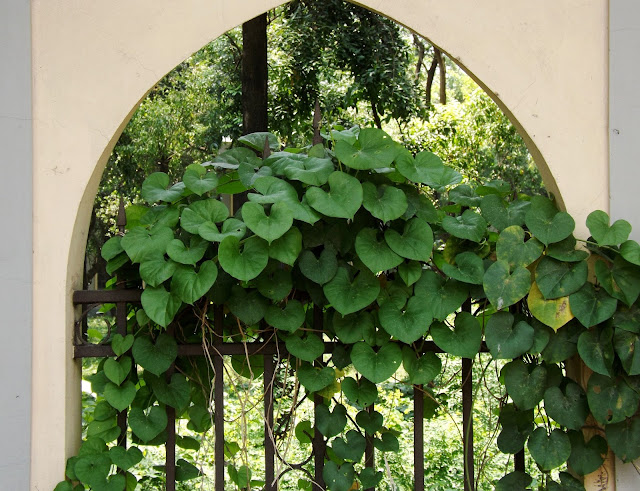Jhunjhuni or Smooth crotalaria, Crotalaria pallida
Jhunjhuni or Smooth crotalaria (Crotalaria pallida, family: Fabaceae) is an annual or perennial erect herb with trifoliate leaves, attaining a height up to 2 m. Young branches are quadrangular, sometimes reddish, pubescent. When the dried fruits are shaken that make rattling sound. The Bangla name of the plant Jhunjhuni is derived from this special feature. It is found in croplands, grasslands, along roadsides and village thickets in Bangladesh. It is also found throughout the tropics.
Other names: Jhonjhoni, Jhumjhumi, Jhunjhuna (Bang); Striped rattlepod, Ding ding (Eng).
Leaves are trifoliate, light green; leaflets membranous, elliptic to elliptic-ovate, 3-7 cm long and 2-4 cm wide, upper part glabrous, lower puberulous, apex rounded or retuse.
20-30 flowers are in terminal or axillary inflorescence, erect, up to 30 cm long. Flowers are bright yellow with claw and reddish-brown lines along the veins on the outer sides. Flowering occurs in summer and it continues to late autumn.
Fruit is a pod, subcylindrical, curved, 3-4 cm long and .5 cm wide, dark brown and glabrescent when mature. Seeds 28-40, unequal-sided, cordate. Flowering and fruiting can be seen at a time on same plant. It is propagated by seeds.
As a medicinal plant it is used in flatulence, gout, irregular menstruation, piles, prostate enlargement, indigestion, anaemia, bolis, skin disease, tuberculosis, cold cough, paralysis and facial paralysis.
The plant commonly occurs throughout the country. It can be cultivated as an ornamental plant in gardens or parks for its beautiful bright yellow flowers and strange sound-making funny fruits. The seeds are sometimes used as a substitute for Coffee somewhere. A black dye is prepared from the plant.
Synonyms: Crotalaria javanica, Crotalaria latifolia, Crotalaria striata var. acutifolia, Crotalaria zuccariniana, Lebeckia rostrata.







how much effort is given to make such posts!!!!!!!!!!
ReplyDelete